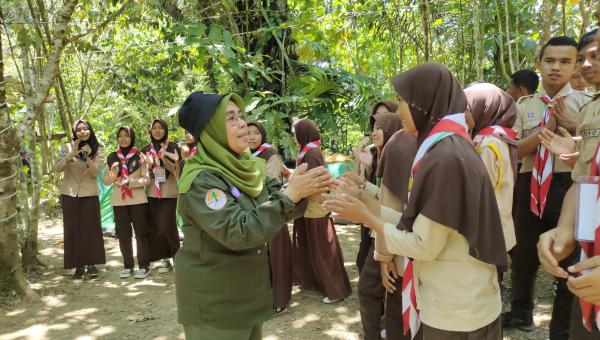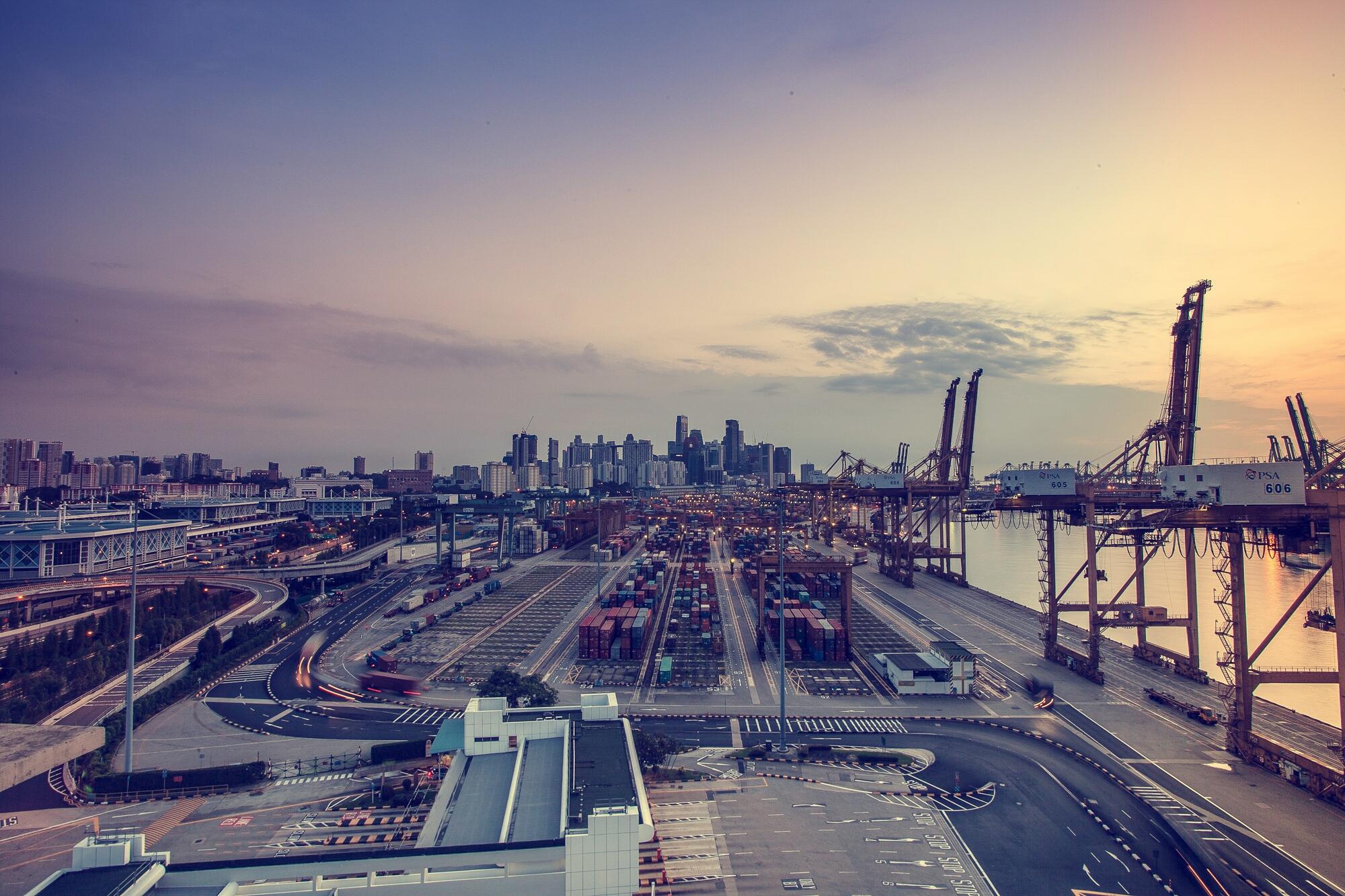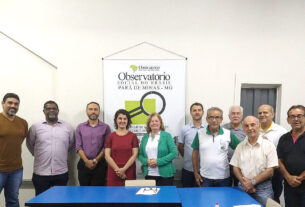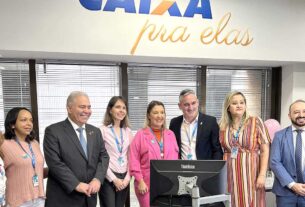As we progress deeper into the 21st century, it is clear that our world faces a multitude of challenges. Climate change, poverty, inequality, and gender discrimination are just a few of the pressing issues that continue to impact society globally. In response to these challenges, the United Nations established the Sustainable Development Goals (SDGs), aiming for a more sustainable future by the year 2030. With Indonesia being one of the countries spearheading initiatives in alignment with these goals, this article delves into the updates and efforts documented on the SDG2030 Indonesia website. Together, we will explore the various pathways being forged towards achieving these ambitious targets. Posted by https://sdg2030indonesia.org/
Overview of the Sustainable Development Goals

The Sustainable Development Goals consist of 17 interconnected objectives designed to drive social, economic, and environmental sustainability. Each goal has specific targets to be reached by 2030, which collectively aim to transform the planet and improve the quality of life for all its inhabitants.
The essence of these goals is rooted in the belief that sustainable development can lead to a more equitable distribution of resources and opportunities. These objectives have garnered international support, creating a framework for nations to rally around as they design their local strategies and initiatives.
Historical Context of the SDGs
The SDGs were adopted in September 2015 during the UN General Assembly. This moment marked a pivotal transition from the Millennium Development Goals (MDGs), which had previously guided global development efforts from 2000 to 2015.
The unique aspect of the SDGs is their universal applicability; every country is called upon to contribute to the realization of the goals, regardless of its level of development. This inclusivity is particularly significant for Indonesia, a rapidly developing nation with diverse socioeconomic landscapes.
In Indonesia, the government and civil society organizations have collaborated to align national policies with the SDGs, ensuring that each goal resonates with local priorities and realities. This foundational work sets the stage for comprehensive strategies that encapsulate community needs while contributing to global objectives.
Importance of Localized Strategies
While the SDGs provide a broad framework, the nuances of each country’s situation necessitate tailored approaches. Localized strategies help ensure that initiatives are culturally relevant and contextually appropriate, ultimately leading to more effective outcomes.
Indonesia’s approach emphasizes stakeholder engagement, emphasizing the importance of involving local communities in decision-making processes. By doing so, policymakers foster a sense of ownership among citizens, empowering them to participate actively in shaping their destinies.
This localized focus aids in identifying unique challenges faced by different regions across Indonesia, allowing for targeted interventions. For instance, rural areas may face different issues than urban centers, necessitating distinct strategies to achieve the same overarching goals.
Progress and Challenges in Achieving the SDGs

As we inch closer to 2030, it is essential to assess the progress made toward fulfilling the SDGs while acknowledging the challenges that remain. Indonesia’s commitment to these goals is evident; however, the journey is rife with obstacles that require concerted efforts to overcome.
Success Stories in Indonesia
Indonesia has witnessed numerous success stories across several SDGs, showcasing innovative approaches to tackling pressing challenges. One notable area of progress lies in education, where the government has undertaken initiatives to enhance access to quality education for all citizens.
Through investments in infrastructure, teacher training, and curriculum development, Indonesia has made strides toward achieving Goal 4: Quality Education. These initiatives not only bolster educational attainment but also empower future generations with the knowledge and skills necessary to navigate an increasingly complex world.
Another success story can be found in efforts to combat climate change under Goal 13. Indonesia has implemented various programs aimed at reducing greenhouse gas emissions through reforestation, sustainable land management practices, and renewable energy initiatives. These collective actions highlight the country’s ambition to transition toward a greener economy while preserving its rich biodiversity.
Existing Challenges
Despite these achievements, Indonesia continues to grapple with several formidable challenges that impede progress toward the SDGs. Inequality remains a pressing issue, particularly in terms of access to resources and opportunities. Rural communities often lag behind their urban counterparts, struggling to secure basic services like healthcare and education.
Moreover, environmental degradation poses a significant threat to both people and ecosystems. Deforestation, pollution, and unsustainable agricultural practices jeopardize the nation’s natural resources, exacerbating poverty and hampering development efforts.
To address these challenges, Indonesia must prioritize inclusive policies that bridge gaps between different demographics. This requires not only governmental action but also collaboration with non-governmental organizations and private sector partners.
Role of Technology in Overcoming Obstacles
Technology plays a crucial role in overcoming some of the challenges associated with achieving the SDGs. Digital tools and platforms enable better data collection, analysis, and dissemination, allowing policymakers to make informed decisions based on real-time information.
For instance, mobile applications can facilitate access to educational content and health services, especially in remote areas. Additionally, technology enables innovative solutions to environmental issues, such as utilizing drones for monitoring deforestation or employing blockchain for transparent supply chains in agriculture.
While technological advancements present significant opportunities, it is vital to ensure equitable access to these innovations. Bridging the digital divide is essential to prevent further marginalization of underserved communities.
Engaging Communities and Building Awareness

Community engagement is fundamental to the successful implementation of the SDGs. Raising awareness about these goals fosters a shared understanding of the collective responsibility required to achieve sustainable development.
Importance of Grassroots Movements
Grassroots movements play a critical role in mobilizing communities around the SDGs. Local organizations are often best positioned to identify specific needs and develop initiatives that resonate with residents.
By promoting collaboration between citizens, businesses, and government entities, grassroots movements can inspire collective action and advocacy. These efforts not only raise awareness but also encourage accountability amongst stakeholders, ensuring that commitments translate into tangible results.
Educational Campaigns and Their Impact
Education serves as a powerful tool for raising awareness about the SDGs. Informative campaigns can facilitate discussions around sustainability, equality, and environmental stewardship, thereby fostering a culture of social responsibility.
Schools and universities are pivotal in nurturing a generation of conscious citizens who understand the importance of sustainable practices. Incorporating SDGs into educational curricula can instill values that shape behaviors and attitudes, ultimately leading to an informed citizenry ready to tackle global challenges.
Leveraging Social Media and Technology
Social media platforms have become indispensable for spreading awareness about the SDGs. They offer a space for open dialogue, sharing success stories, and mobilizing individuals to take action within their communities.
Innovative challenges and campaigns can engage younger audiences, encouraging them to participate in activities that align with the SDGs. By leveraging these platforms, advocates can reach wider audiences and create a collective momentum around sustainable development efforts.
The Role of Government and Policy Frameworks

Governmental commitment is vital for the successful implementation of the SDGs. National policies and frameworks must reflect the urgency and significance of achieving these goals.
Policy Integration and Collaboration
Integrating the SDGs within national and local policies ensures that sustainable development becomes a priority across various sectors. This requires collaboration between different ministries, agencies, and stakeholders in order to create a cohesive approach.
For example, addressing climate change necessitates concerted efforts from ministries overseeing environment, agriculture, economic development, and public health. Policymakers must work collaboratively to identify synergies, share resources, and harmonize efforts toward common objectives.
Monitoring and Accountability Mechanisms
Robust monitoring and accountability mechanisms are essential for tracking progress toward the SDGs. Transparent reporting allows stakeholders to assess the effectiveness of initiatives and hold leaders accountable for their commitments.
Utilizing technology to collect and analyze data provides insights into the successes and deficiencies of various programs. Regular assessments can inform policy adjustments, ensuring that efforts remain aligned with community needs and global standards.
Fostering Public-Private Partnerships
Public-private partnerships (PPPs) can significantly enhance resource mobilization and capacity building for SDG implementation. Collaborations between governments, businesses, and civil society organizations can leverage expertise, funding, and networks to tackle complex challenges.
By creating an enabling environment for PPPs, Indonesia can harness the strengths of diverse stakeholders to drive sustainable development initiatives. Such collaborations can result in innovative solutions that may not be feasible through traditional methods.
FAQs

What are the Sustainable Development Goals?
The Sustainable Development Goals (SDGs) are 17 interconnected global goals established by the United Nations to address pressing challenges such as poverty, inequality, climate change, environmental degradation, peace, and justice.
How is Indonesia working towards the SDGs?
Indonesia is aligning its national policies with the SDGs by investing in education, sustainable agriculture, and renewable energy. The government collaborates with local communities, NGOs, and the private sector to implement initiatives that resonate with local needs.
What are some challenges Indonesia faces in achieving the SDGs?
Challenges include income inequality, environmental degradation, and limited access to essential services for rural communities. Addressing these issues requires inclusive policies and collaboration among various stakeholders.
Why is community engagement important for the SDGs?
Community engagement fosters a sense of ownership and empowers citizens to participate actively in shaping their futures. It ensures that initiatives are contextually relevant and that diverse perspectives are considered in decision-making.
How can technology aid in achieving the SDGs?
Technology can facilitate data collection, improve access to services, and promote innovative solutions to environmental challenges. However, it is crucial to ensure equitable access to these technologies to avoid further marginalization.
Conclusion
The journey toward achieving the Sustainable Development Goals by 2030 is filled with promise yet fraught with challenges. Indonesia’s commitment to these goals reflects a broader vision for a sustainable future, characterized by inclusivity, resilience, and innovation. As we move forward, it is imperative to foster collaboration between government entities, communities, and the private sector while leveraging technology for meaningful change. Only through collective action can we pave the road to 2030, ensuring that no one is left behind in this quest for a better world.



